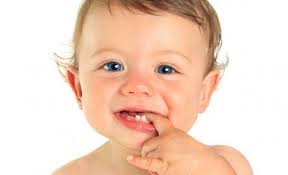Uncategorized
Baby Teething Stages and Tooth Loss Timeline [Updated for 2018]
ALPHARETTA, GA – Whether you are a new parent, or expecting your fourth child, it is always good to know when to expect your baby’s teeth coming in and to be prepared with some soothing teething remedies. Some babies suffer greatly from cutting teeth, and only a few aren’t necessarily bothered by it. So, when does a baby cut its first teeth?
Actually, your baby begins to develop the roots of their teeth while in the uterus during the second trimester. After he or she is born, you can see baby teeth sprouting (lower central incisors) from the bottom gum between 3 and 6 months, followed by the upper gum (upper central incisors) approximately 1 to 2 months later. At this stage, the gums will be red and swollen, and your baby may tend to be fussy and to drool a little more; he or she may possibly run a low-grade fever, but this is all normal.
If you find your baby is having a particularly difficult time, it would be best to seek a pediatric dentist such as Polkadot Pediatric Dentistry where Dr. Nanna Ariaban treats babies and toddlers in Alpharetta, Georgia each day. For most of us, when you are dealing with a baby teething, no one will be getting much rest, but a baby dentist can guide you in the right direction and give you excellent tips on how to make your baby more comfortable during this time.
Stage 1: Baby Teeth Begin Growing
Between 8 and 17 months, your baby will begin cutting teeth next to the lower and upper central incisors. Depending on the child, you will see their first and second molars come in on the top and bottom between 11 and 33 months. The cuspid baby teething period is approximately between 15 and 25 months. Teething babies may try to chew on objects because their gums are itching from the teeth sprouting up. Luckily, there are plenty of safe teething toys available. You may want to invest in one to avoid having a bunch of chewed-up slippers!
During this time, make sure you’re practicing good dental habits and proper nutrition for your child. It may seem unnecessary because they barely have any teeth, but babies can also develop cavities from having too much sugar or sleeping with bottles. Your child should have all 20 primary teeth by the time they reach the age of 3, and at this point, a regular routine of brushing their teeth, flossing, and visiting the Pediatric Dentist in Roswell should have been established in order to prevent cavities.
Stage 2: Losing Baby Teeth
Just when you think you have everything under control, your child will begin losing his or her primary teeth around the age of 6. This will be a good time to be planning for all those visits your child will have from the Tooth Fairy. As a rule, children will generally lose their primary teeth in the order in which they originally grew. Between the ages of 6 and 12, your child will have a combination of baby and permanent teeth until the process is over at around 12-13 years old. At this point they will have 28 permanent teeth until their wisdom teeth begin coming in between the age of 17-21, rounding out the overall tooth count at 32.
Stage 3: Adult Teeth and Braces
Children will have 28 permanent teeth until their wisdom teeth begin coming in between the ages of 17-21, rounding out the overall tooth count at 32. Though some wisdom teeth are harmless, most people have them removed in case they get impacted. To learn more about wisdom teeth, check out this guide about removing wisdom teeth from the doctors at Dental Studio of Pasadena.
Even though they won’t have all their teeth until later, between 6 and 13 is a good time for routine visits with the pediatric dentist in order to monitor proper placement and growth of permanent teeth. Your dentist can look for potential problems such as overcrowded teeth, bite problems, overbite, underbite, etc., and determine if your child will need to visit an orthodontist for braces at this point. The pediatric dentist may even recommend two-phase braces at an early orthodontic screening.
Your baby will be cutting and losing teeth most of his or her childhood and into young adulthood. During this time, having a good baby dentist at a pediatric dentistry to monitor their progress as they grow will ensure a healthy mouth and teeth that will last them a lifetime.
Dr. Nanna is a board-certified pediatric dentist in Alpharetta, GA. She believes in developing a strong relationship with her patients from a young age to instill good dental habits for healthy teeth. If you have any questions about pediatric dentistry, Dr. Nanna is trained to work specifically with children of all ages and can help answer them.
© 2018 Polkadot Pediatric Dentistry. Authorization to post is granted, with the stipulation that Polkadot Pediatric Dentistry in Alpharetta, GA is credited as sole source. Linking to other sites from this press release is strictly prohibited, with the exception of herein imbedded links.


